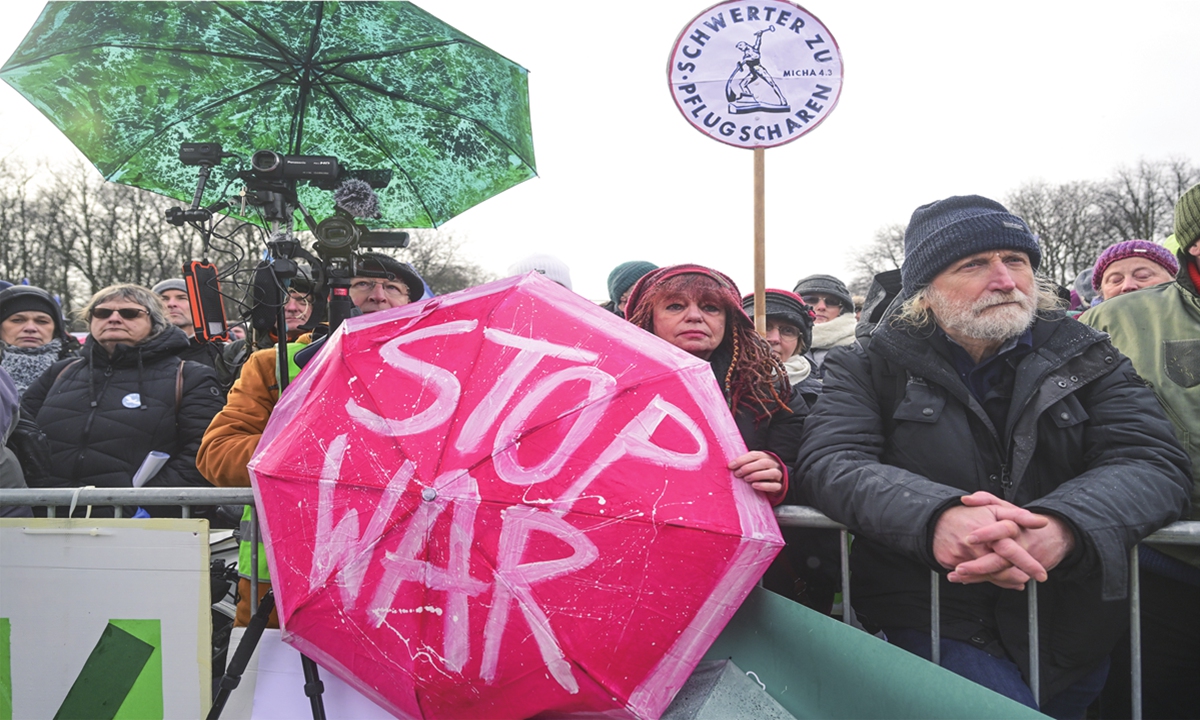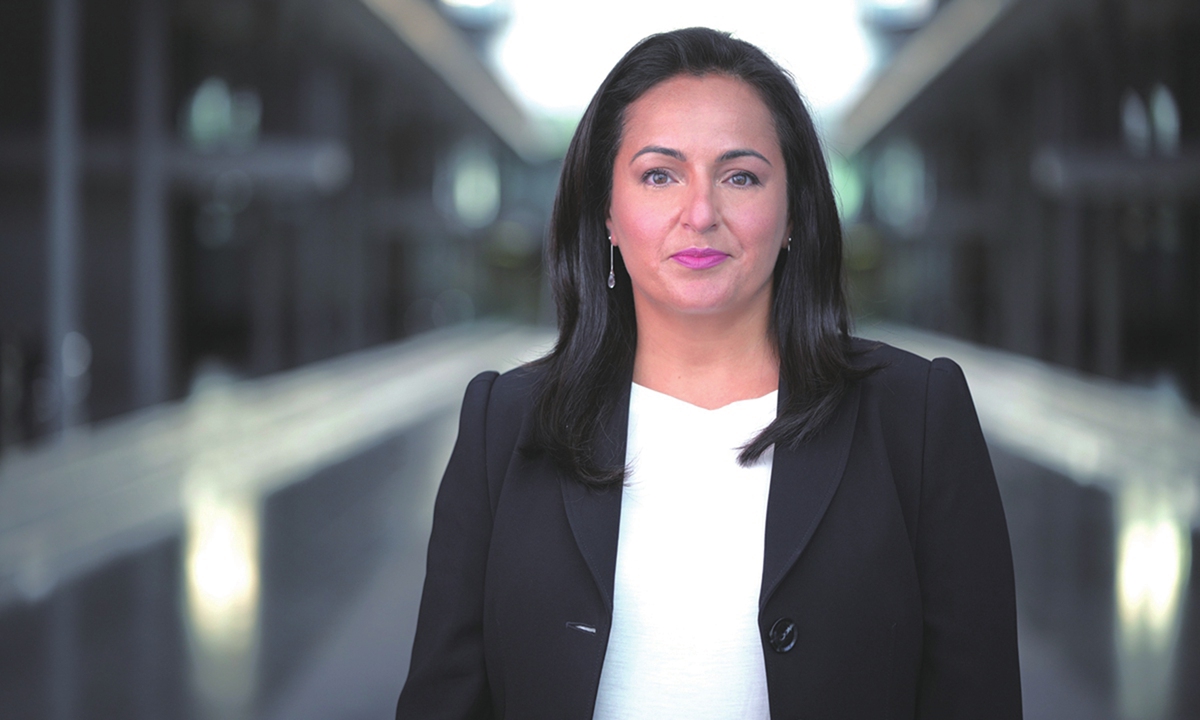
Thousands of people gather during a demonstration held at Berlin's historic Brandenburg Gate, calling for peace negotiations with Russia in the Ukraine war on February 25, 2023 in Germany. Photo: VCG
Editor's Note:
Sevim Dagdelen Photo:Courtesy of Dagdelen
GT: EU leaders have approved a 50 billion euro ($54 billion) plan to support Ukraine for the next four years. Why didn't Europe reduce its losses as soon as it could?


